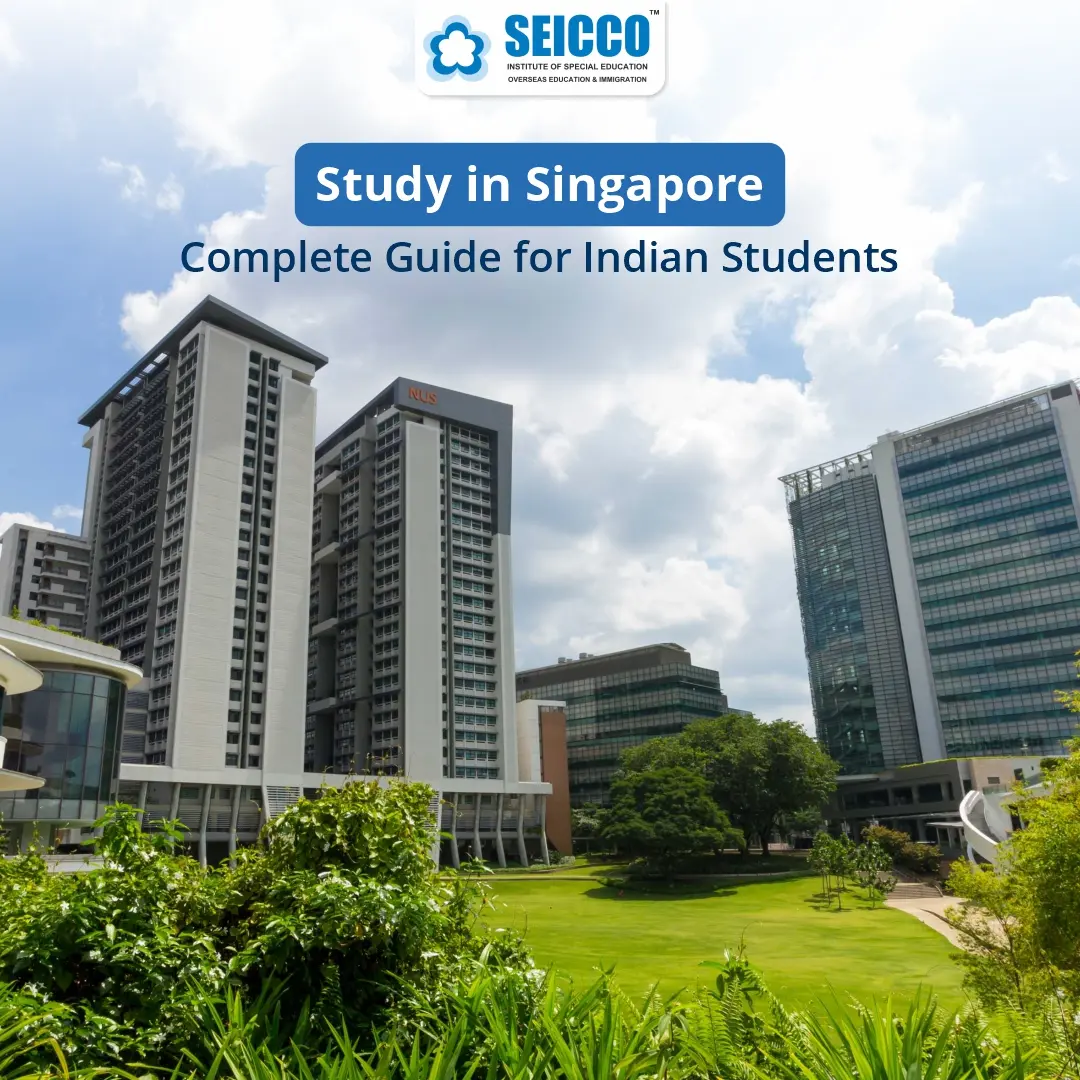Australia has long been a preferred destination for international students, including those from India, seeking quality education in a multicultural environment. From breathtaking landscapes to world-class educational institutions, Australia offers a unique experience for students looking to pursue higher education abroad. However, before embarking on this journey, it’s crucial to understand the requirements and procedures involved. This guide aims to provide detailed information for Indian students aspiring to study in Australia.
Requirements for Studying in Australia: Eligibility Criteria
To study in Australia, Indian students need to meet certain eligibility criteria. These typically include:
- Academic Requirements:
Students must have completed their previous educational qualifications, such as high school or undergraduate degrees, depending on the program they wish to pursue in Australia. - English Proficiency:
Since English is the primary language of instruction in Australian universities, international students, including those from India, are required to demonstrate proficiency in English through standardized tests like IELTS, TOEFL, or PTE Academic. - Financial Capacity:
Students must provide evidence of sufficient funds to cover tuition fees, living expenses, and other costs associated with studying and living in Australia. This can be demonstrated through bank statements, sponsorship letters, or scholarship awards. - Health Insurance:
International students are required to have Overseas Student Health Cover (OSHC) for the duration of their stay in Australia. This ensures access to medical services and covers any medical emergencies during their time in the country. - Visa Requirements:
Indian students must obtain a student visa (subclass 500) to study in Australia. This involves submitting a valid Confirmation of Enrolment (CoE) from a registered Australian institution, proof of financial capacity, health insurance, and meeting health and character requirements.
Academic Requirements to Study in Australia
The academic requirements vary depending on the level of study and the institution chosen. Generally, for undergraduate programs, Indian students need to have completed their secondary education with a certain grade point average (GPA) or equivalent qualification. For postgraduate programs, a relevant undergraduate degree from a recognized institution is usually required.
You will be required to provide educational information, such as course subjects and grades. Applicants must submit official transcripts from each college/ institution they have attended when submitting an admissions application. This must be supported by information about subjects, credits, and other relevant details, such as diplomas or correspondence courses. You’ll need attestation copies of the following:
- Class 10 mark sheet
- Class 12 mark sheet
- A provisional certificate or graduation degree with a score sheet
Transcripts and other non-English papers should be translated appropriately and preserved with certified original copies, which are certified by a body or person approved by the national government or the legislation.
Forms for Application
When applying to study in Australia, Indian students typically need to complete the following forms:
- University Application Form:
This form is provided by the chosen university and requires personal details, educational background, program preferences, and any additional information required for admission. - Student Visa Application Form:
The Australian Department of Home Affairs provides the online application form for the student visa (subclass 500). Applicants must complete this form accurately and provide all required documents.
Requirements for Your Application
In addition to completing the application forms, Indian students must submit various documents to support their application, including:
- Academic Transcripts: Official transcripts or mark sheets from previous educational institutions.
- English Proficiency Test Scores: Results of tests like IELTS, TOEFL, or PTE Academic.
- Statement of Purpose (SOP): A written statement outlining the student’s academic background, career goals, and reasons for choosing the specific course and institution.
- Letters of Recommendation: References from teachers, professors, or employers endorsing the student’s academic abilities and character.
- Passport Copy: A clear copy of the passport bio-data page.
- Proof of Funds: Documents demonstrating the student’s financial capacity to cover tuition fees and living expenses in Australia.
- Health and Character Certificates: Certificates proving good health and character, as required for the student visa application.
Eligibility Criteria to Study in an Australian University:
The eligibility criteria for international students, including Indian students, vary depending on the program and institution. Here are the general requirements for undergraduate (UG) and postgraduate (PG) programs:
- UG Programs:
- Completion of secondary education equivalent to Australian Year 12.
- Meet the minimum academic requirements specified by the chosen university or program.
- English language proficiency as demonstrated through standardized tests like IELTS (overall score of 6.0-7.0), TOEFL (overall score of 60-100), or PTE Academic (overall score of 50-79), depending on the institution and course.
- PG Programs:
- A relevant undergraduate degree from a recognized institution.
- Meet the minimum academic requirements set by the university or faculty.
- English language proficiency, typically with higher scores compared to undergraduate programs.
English Proficiency Requirements:
- Bachelor’s Degree
Most Australian universities require international students, including those from India, to demonstrate proficiency in English through standardized tests. The minimum scores may vary depending on the institution and program.
- IELTS: a minimum overall score of 6.0-7.0
- PTE Academic: 60-100 in TOEFL, or 50-79 is required for undergraduate programs.
- Master’s Degree:
For postgraduate or master’s degree programs in Australia, the English proficiency requirements are often slightly higher compared to undergraduate programs. While the specific requirements can vary depending on the institution and program, here’s a general guideline:
- IELTS: A minimum overall score of 6.5 to 7.5, with no individual band score below 6.0.
- TOEFL: A minimum overall score of 79 to 100, with minimum scores of 21-24 in the individual sections (reading, listening, speaking, and writing).
- PTE Academic: A minimum overall score of 58 to 90, with no communicative skill score below 50.
Admission Examinations
While admission examinations are not common for undergraduate programs in Australia, some institutions may require additional entrance exams or interviews for certain courses or programs, especially at the postgraduate level. These exams could assess subject-specific knowledge, aptitude, or skills relevant to the chosen field of study.
Following Up After Applying
After submitting the application, Indian students should regularly check the status of their application through the university’s online portal or contact the admissions office for updates. They may also need to respond promptly to any requests for additional information or documentation from the university or immigration authorities.
Intake & Application Cycle
Australian universities typically have two main intakes: February/March (Semester 1) and July/August (Semester 2). However, some institutions may offer additional intakes or start dates for certain programs. It’s essential for Indian students to check the specific application deadlines and intake dates for their chosen course and institution.
Top Universities in Australia and Their Popular Courses
Australia is home to several prestigious universities offering a wide range of courses across various disciplines. Some of the top universities in Australia and their popular courses for Indian students include:
| University | Popular Courses |
| 1. University of Melbourne | Business, Engineering, Medicine, Humanities |
| 2. Australian National University (ANU) | Politics, International Relations, Science |
| 3. University of Sydney | Business, Health Sciences, Architecture, Arts |
| 4. University of New South Wales (UNSW Sydney) | Engineering, Business, Law |
| 5. University of Queensland (UQ) | Agriculture, Environmental Science, Medicine |
| 6. University of Western Australia (UWA) | Mining Engineering, Health Sciences, Arts |
| 7. Monash University | Business, Engineering, Medicine, Science |
| 8. University of Adelaide | Engineering, Medicine, Sciences, Business |
| 9. University of Technology Sydney (UTS) | IT, Engineering, Business, Communication |
| 10. University of Wollongong | Business, Engineering, IT, Health Sciences |
Tuition Fees for Studying in Australia
Tuition fees for international students in Australia vary depending on the institution, program, and level of study.It’s essential for Indian students to carefully review the fee structure of their chosen course and factor in additional costs for living expenses, textbooks, and other study-related expenses.
- Undergraduate Programs: AUD 20,000 to AUD 45,000 per year.
- Postgraduate Programs: AUD 22,000 to AUD 50,000 per year.
- Average Annual Tuition: Approximately AUD 20,000 to AUD 50,000, depending on the course and institution.
Cost of Living in Australia:
Along with tuition fees, it’s essential to consider the overall cost of living to effectively budget for the duration of your stay. Understanding the expenses involved in accommodation, food, transportation, and other necessities can help students plan their finances and make the most of their time in Australia.
- Accommodation: AUD 800 to AUD 1,500 per month for shared accommodation, AUD 1,500 to AUD 3,000 per month for private rentals.
- Food: AUD 200 to AUD 400 per month for groceries, AUD 10 to AUD 20 per meal eating out.
- Transportation: AUD 30 to AUD 60 per week for public transportation.
- Utilities (electricity, water, internet): AUD 150 to AUD 250 per month.
- Miscellaneous (entertainment, personal expenses): AUD 200 to AUD 400 per month.
Frequently Asked Questions (FAQs)
- Can Indian students work while studying in Australia?
Yes, international students on a student visa (subclass 500) are typically allowed to work part-time (up to 20 hours per week) during the academic year and full-time during scheduled breaks.
- Are scholarships available for Indian students to study in Australia?
Yes, many Australian universities offer scholarships and financial aid opportunities for international students, including those from India. Students can explore scholarship options offered by individual institutions, government bodies, and external organizations.
- What are the accommodation options for Indian students in Australia?
Accommodation options for international students in Australia include university-managed accommodation, homestays, shared apartments, and private rentals. It’s advisable for Indian students to research and secure accommodation well in advance of their arrival in Australia.
- Is it possible to extend a student visa in Australia?
Yes, under certain circumstances, international students may be eligible to apply for a visa extension to continue their studies or undertake further courses in Australia. It’s important to check the visa requirements and eligibility criteria for visa extensions through the Australian Department of Home Affairs.
Studying in Australia offers Indian students a world-class education, vibrant multicultural environment, and endless opportunities for personal and academic growth. By understanding the requirements, application procedures, and available resources, Indian students can make informed decisions and embark on a fulfilling educational journey in Australia.







